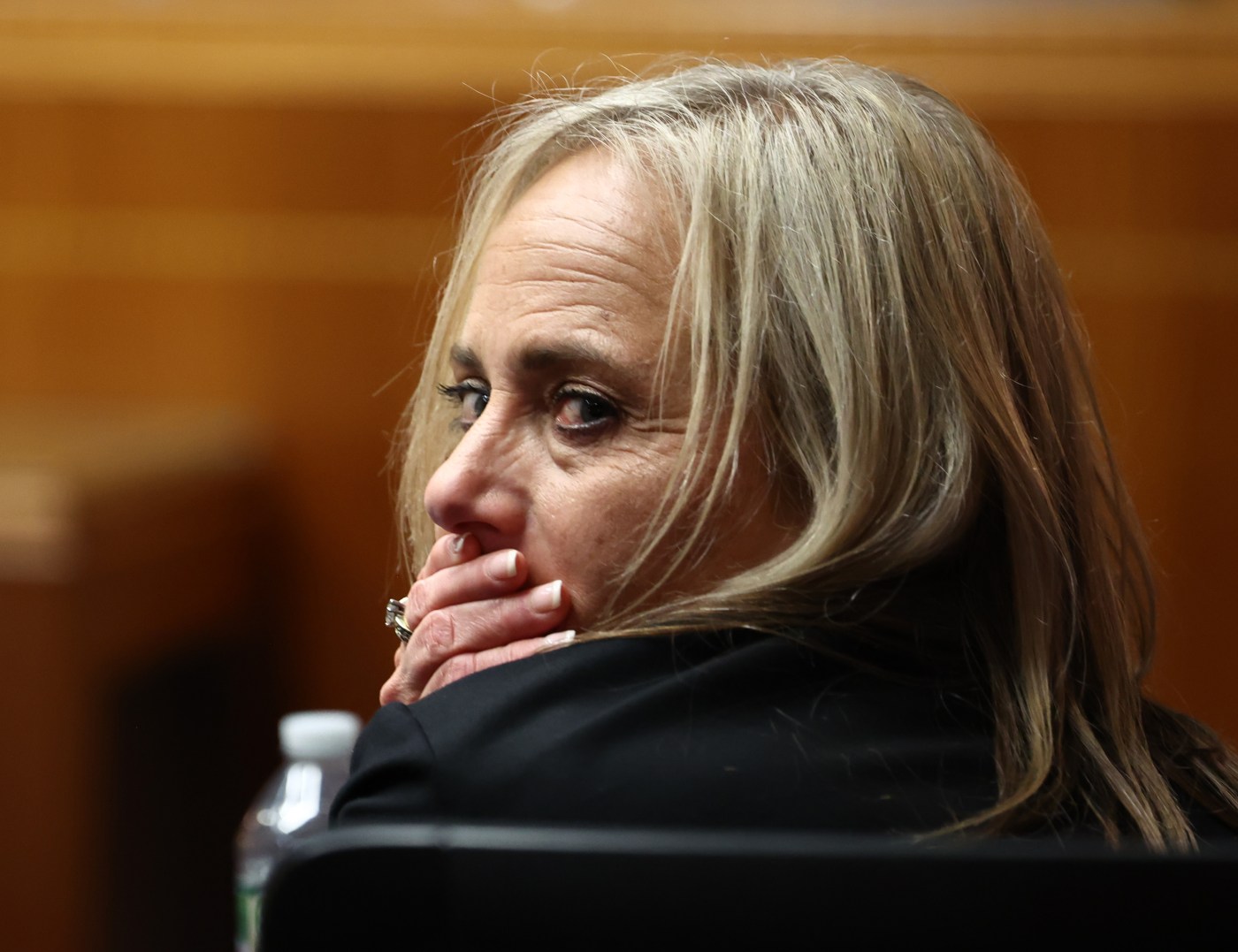
Bay State Judge accused of helping man escape ICE custody faces hearing
A lawyer who helped his client avoid federal custody says he knew that he was acting “on the edge” when he arranged to have his client, an illegal immigrant wanted by federal immigration officials, exit the back of a courthouse, but added that he thought he was acting with the blessing of the judge.
The revelation came in the opening day of a hearing before the Commission on Judicial Conduct into civil charges against Newton District court Judge Shelley Joseph who is accused of colluding with the immigrant’s attorney, David Jellinek and a court officer to allow his client to escape out a back door of the courthouse.
“I had done that to the best of my ability. We’re supposed to be zealous advocates, and that’s what I did. I did not think it was unethical or illegal. I thought it was on the edge,” Jellinek said during testimony Monday.
The conduct hearing into Joseph came as part of a deal with federal prosecutors to dismiss charges of obstructing justice and perjury.
The feds had alleged that Joseph was responsible in 2018 for getting in the way of Immigrations and Customs agents who were attempting to execute an order for removal on Jellinik’s client, the defendant Jose Medina-Perez.
Along with drug charges, Medina-Perez was in court on a warrant out of Pennsylvania.
Though the charges against Joseph were later dropped by the Biden Administration, the conditions included that she submit to the scrutiny of the Commission for Judicial Conduct which held Monday’s hearing. Federal prosecutors had extended a grant of immunity to Jellinik.
Judith Fabricant, special counsel for the commission, said Monday, “This case is about the integrity, impartiality and independence of the Massachusetts judiciary and the appearance of the integrity, impartiality and independence every judge must uphold.”
A lawyer for Joseph, Elizabeth Mulvey, said the case had been distorted over time and that everyone had come to believe that her client “let an illegal immigrant out of the door” with half of those people believing she should be jailed and the other half calling her a “folk hero.”
Mulvey argued that Joseph had been vilified in the media and people were giving the impression that “dozens of people” had seen Joseph “get off the bench, escort the defendant to the door, give him a hug and wish him god speed.”
“Today in this court room we are going to have an opportunity to hear all the evidence,” Mulvey said. “She was trying to respect the rights of everyone before her, including Immigrations and Customs Enforcement,” Mulvey continued.
Denis McInerney, the hearing officer assigned to the case by the Supreme Judicial Court, said he will hear the evidence and then make a recommendation afterward based on whether he finds Joseph violated the Massachusetts Code of Judicial Conduct. The hearing is expected to last about a week.
The question underlying the charges and the judicial conduct hearing, according to the Joseph’s attorney, is over what transpired during a 52-second, off the record conversation between Joseph, the Assistant District Attorney, and Jellinik.
Jellinek testified Monday that at one point he asked if he and the ADA on the case could have a “sidebar” conversation with Joseph. A transcript of that sidebar comes in two parts, with a 52-second “off the record” conversation occurring in the middle.
Jellinek said that during that off-the-record moment, he explained to the judge that he was hoping to get his client out of the courthouse without encountering ICE. He knew there was a door used by court officers to accept criminal defendants, and according to his testimony he told the judge he would use that back door, with her permission.
Fabricant Monday argued that Joseph signaled her approval for the plan – including in the off the record conversation during the side bar — when she appeared sympathetic to Jellinek’s desire for his client to avoid ICE.
But another attorney for Joseph, Thomas Hoopes, suggested that Jellinek might have misinterpreted Joseph’s comments when she raised the possibility that Medina-Perez could be detained, rather than be released.
The prosecutor had agreed Medina-Perez wasn’t the man wanted in Pennsylvania and moved to drop the fugitive from justice charge. She also wasn’t seeking bail on the drug charges so he was free to go.
Much will hinge on what was said during that off the record conversation, which lasted only 52 seconds and is being disputed by both sides.
Joseph’s hearing was adjourned for the day after Jellinek’s testimony, but will continue on Tuesday at 10 a.m.


